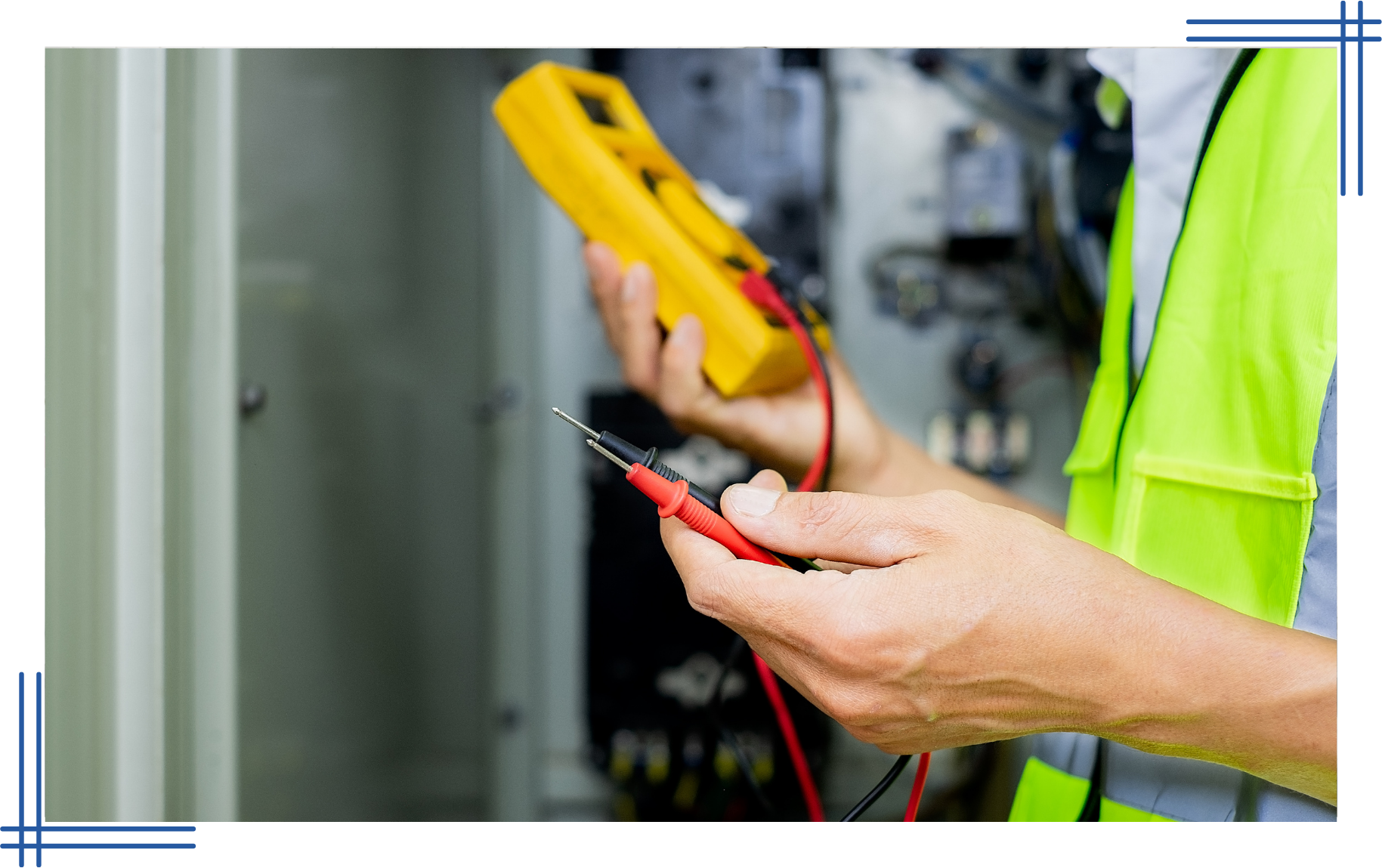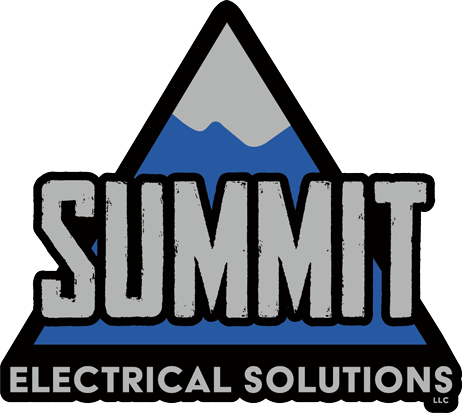
Slide title
Write your caption hereButton
Electrical Inspections

Slide title
Write your caption hereButton
Electrical Inspections
Electrical inspections are a fundamental aspect of maintaining safety and ensuring the integrity of electrical systems in residential, commercial, and industrial settings. These inspections help to prevent fires and safeguard the general well-being of individuals and property. Carried out by qualified professionals, such as those from Summit Electrical Solutions, they are critical for detecting potential hazards that could lead to serious accidents or costly damages.
Ensuring Compliance And Enhancing Efficiency
The significance extends into the realm of legal compliance. Adhering to established codes and regulations such as the National Electrical Code (NEC) and Occupational Safety and Health Administration (OSHA) standards is not merely a formality. These standards are designed to ensure that installations meet minimum safety thresholds to protect individuals and property from hazards. Failure to comply with these codes can result in severe legal consequences, including fines and penalties. For businesses, non-compliance can also lead to shutdowns or operational delays, which can be financially debilitating.
Inspectors assess the condition and performance of electrical components and systems to identify any inefficiencies that might be present. This assessment allows for the optimization of energy use, which can lead to significant cost savings over time. Inefficient systems not only increase energy consumption but also elevate the risk of damage and wear, leading to higher maintenance costs. Regular inspections help in pinpointing areas where energy use can be minimized, which in turn contributes to a more environmentally friendly operation.
Did you know that the color of the wires in your home or office could tell an inspector a lot about the age of the installation? Wiring color standards have changed over the years, and an unexpected color can be a red flag. Another surprising fact is that some of the most common violations are often hiding in plain sight, such as overloaded power outlets or improperly installed light fixtures. These seemingly minor issues can lead to major consequences if not addressed promptly.
Types Of Electrical Inspections
Routine checks are the most common type, conducted at regular intervals to ensure the ongoing safety and efficiency of electrical systems. These inspections serve as preventative maintenance, helping to catch and address minor issues before they escalate into major problems. During a routine check, an inspector can examine panels, wiring, and safety devices to ensure everything is operating correctly. They also look for signs of wear and tear, overloading, and outdated components that might need replacing.
Comprehensive inspections go beyond the surface checks of routine inspections and involve a detailed analysis of the entire electrical system. Thermal imaging cameras, advanced multimeters, and insulation resistance testers are just a few of the tools used to diagnose the condition without disrupting the existing setup. These are particularly effective in uncovering hidden problems that may not be visible during routine checks. They can identify issues such as poor grounding, hidden wiring problems, and potential fire hazards. This type of inspection is crucial when changes are being made to a facility, such as renovations or upgrades, or when a system is aging and needs to be evaluated for potential overhaul.
Emergency inspections are critical and are typically conducted in response to an incident or when there is an immediate risk to safety. They are prioritized and performed urgently to diagnose critical electrical issues that could pose immediate threats, such as sudden power outages, shocks, or equipment failures. The focus is on fast diagnosis and developing solution recommendations to restore safety and functionality as quickly as possible. Inspectors must be highly skilled and capable of making rapid, accurate assessments under pressure. They help prevent further damage to electrical systems and reduce the risk of accidents or injuries, making them a vital part of emergency response protocols.
Our Methodology
At Summit Electrical Solutions, our methodology is defined by a rigorous and systematic approach, ensuring each aspect is thoroughly evaluated to uphold safety and efficiency. The culmination of the process is the production of a detailed report that summarizes the findings and provides actionable recommendations. This report is critical as it not only documents the current state of the electrical system but also outlines specific areas needing attention or improvement. It serves as a valuable tool for property owners and managers, offering clear guidelines and recommendations for remedial actions, upgrades, or further evaluations if necessary.
Recognizing that different environments present unique challenges and requirements, our approach is tailored accordingly. Whether it’s an industrial setting with heavy machinery, a commercial space with high energy demands, or a residential property, each environment requires a specific strategy to address its particular characteristics and compliance requirements.
Don't wait for issues to become emergencies. Whether you manage a commercial property, oversee an industrial operation, or simply want to ensure your home is safe and sound, we have the expertise and technology to provide thorough and reliable inspections.
Contact us today to schedule your comprehensive inspection and take the first step towards securing your property and well-being.
Frequently Asked Electrical Inspection Questions
Q1: Can unusual smells indicate an electrical issue?
A1: Yes, certain smells can be warning signs of electrical problems. A burning or acrid odor could signal overheating wires or components, while a fishy smell might point to a malfunctioning outlet or appliance. An inspection can pinpoint the source of these smells and address the underlying issue.
Q2: Can DIY projects cause issues?
A2: Unfortunately, yes. DIY electrical work, if not done to code, can lead to safety hazards and will likely be red-flagged during an inspection. It's always best to consult a licensed electrician for any work beyond very basic tasks, to avoid costly corrections later.
Q3: Does the presence of specific appliances trigger a more in-depth inspection?
A3: In some cases, yes. Appliances like hot tubs, swimming pools, large workshop equipment, or home generators often have complex electrical requirements. An inspector may pay extra attention to the wiring and associated safety features around these installations.
All Rights Reserved | Summit Electrical Solutions
